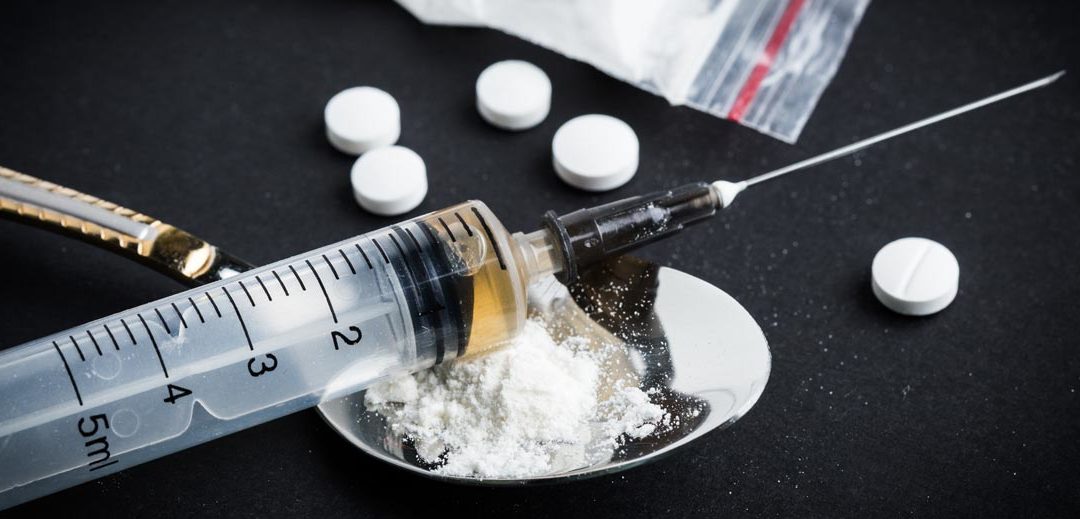The number of Americans addicted to heroin is a growing problem. According to the American Society of Addiction Medicine, 591,000 Americans ages 12 or older had a substance use disorder involving heroin.1 Heroin addiction is particularly destructive to the physical, emotional, and social health and well-being of a person and abuse or chronic use should be addressed as quickly as possible.
What Is Heroin?
Heroin is an opioid made from morphine, which is naturally found in the seedpod of the poppy plant grown in areas of Asia, Columbia, and Mexico.2 This narcotic is extremely addictive due to the intense feelings of euphoria it creates. Heroin is also very dangerous because it’s often mixed or “cut” with other substances such as powdered sugar, starch, or powdered milk, so users don’t actually know how much heroin they are taking. This results in higher instances of overdose.3
Heroin typically comes in a white or light brown powder, but can also be a black sticky substance, called black tar heroin. It is typically snorted through a straw, injected with a needle, or smoked through or pipe.4,5
What Does Heroin Addiction Look Like?
If a person is addicted to heroin, they may have displayed two or more of the following criteria within the same 12-month period. This is outlined in the Diagnostic and Statistical Manual of Mental Disorders.6
- The person had moments when they ended up using more heroin than they planned to.
- The person tried to stop using heroin several times but couldn’t.
- The person spent a significant amount of time using heroin.
- The person experienced strong urges or cravings for heroin.
- The person found that using heroin frequently interfered with family, employment, or school responsibilities.
- The person continued to use heroin even though it was causing problems with family and friends.
- The person neglected activities and hobbies that they used to enjoy in order to use heroin.
- The person got into dangerous or life-threatening situations while using heroin (or after using) more than once.
- The person continued to use heroin even though it made them depressed, anxious, or complicated an existing health problem.
- The person found that using the same amount of heroin does not provide the effect it did before.
- The person experienced withdrawal symptoms when the effects of heroin faded.
Many people who use heroin regularly or even just once become addicted. The substance enters the brain very quickly, creating a powerful surge of euphoria and making it a highly desirable drug. Once a person develops a tolerance, they will feel the need to use larger doses of it more often to achieve the same effect. This habit results in physical dependence and addiction.6
Physical Side Effects of Heroin Addiction
Immediate physical side effects of heroin use include dry mouth, nausea, vomiting, extreme itching, flushed skin, and reduced mental functioning.5,7
Long-term and consistent heroin abuse may result in the following physical symptoms7:
- Liver and kidney disease
- Damaged nasal tissues
- Insomnia
- Lung damage
- Collapsed veins
- Infection of the heart lining and valves
- Increased risk of HIV and hepatitis B and C
- Coma
- Swollen sores filled with pus
- Permanent brain damage
- Increased risk of overdose and death
According to the National Institute on Drug Abuse, research has shown that long-term heroin use negatively affects the brain and results in some loss of the brain’s white matter. This part of the brain affects decision-making, behavior control, and stress responses.5
Psychological Side Effects of Heroin Addiction
Consistent heroin abuse also results in a number of negative psychological effects including antisocial personality disorder and depression. Many heroin users experience depression because of the way the drug affects the brain. Heroin attaches to opioid receptors, resulting in increased feelings of happiness and euphoria and changing the way they send and receive messages.
Over time, the brain adjusts and learns to expect this amount of stimulation. As a result, a person will experience a severe drop in pleasurable feelings when they stop using. This causes severe bouts of depression and relapse.8
Social Side Effects of Heroin Addiction
The negative side effects of heroin abuse also reduce a person’s quality of life, increase the likelihood of depression, and negatively impacts the lives of others close to them.9
- Job loss – In general, drug abuse results in a loss of productivity at work due to a lack of mental awareness, focus, and reliability. Individuals suffering from heroin addiction may also miss work frequently as a result of uncomfortable withdrawal symptoms.
- Child neglect/abuse – Drug abuse is also associated with higher rates of child abuse and neglect.10
- Strained relationships – Addicted individuals may not be as reliable and trustworthy as they are when they are sober, resulting in strained relationships at work, school, and home.
- Financial distress – In many instances, a person who is addicted to heroin will do anything to get more drugs. This may include draining bank accounts, selling valuable property, or stealing money from friends and family members.
Heroin addiction impacts the well-being of an individual in several different ways and can cause severe and life-threatening issues. If you or a loved one is struggling with heroin addiction and the negative side effects of heroin abuse, you don’t have to keep suffering. Hill Country Detox provides luxury amenities and individualized detox treatment to give you the best opportunity for long-term sobriety. Please contact our admissions team today to learn more about our detox programs.
References:
- https://www.asam.org/docs/default-source/advocacy/opioid-addiction-disease-facts-figures.pdf
- https://www.drugabuse.gov/drugs-abuse/heroin
- https://www.getsmartaboutdrugs.gov/drugs/heroin
- https://www.getsmartaboutdrugs.gov/sites/getsmartaboutdrugs.com/files/publications/DoA_2017Ed_Updated_6.16.17.pdf#page=42
- https://www.drugabuse.gov/publications/drugfacts/heroin
- https://www.drugabuse.gov/publications/media-guide/science-drug-abuse-addiction-basics
- https://www.drugabuse.gov/publications/research-reports/heroin/what-are-medical-complications-chronic-heroin-use
- http://heroin.net/heroin-effects/heroin-effects-sub-page-1/heroin-addiction-and-depression-side-effects/
- https://www.unodc.org/pdf/technical_series_1995-03-01_1.pdf
- https://aifs.gov.au/cfca/publications/child-maltreatment-and-substance-abuse
- https://medlineplus.gov/heroin.html


Recent Comments